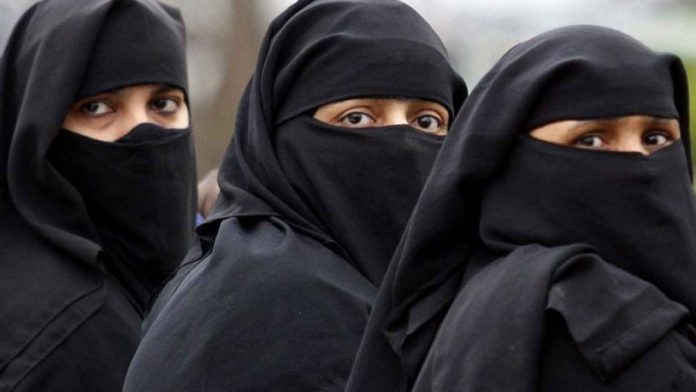New Delhi, (IANS): The Centre on Thursday urged the Supreme Court to examine whether the practice of ‘talaq-e-bidat’ (instantaneous triple talaq), ‘nikah halala’ and polygamy were in conformity with the right to equality before law and protection of life and personal liberty guaranteed to the Muslim women under the Constitution.
Article 14 of the Constitution guarantees right to equality before law and Article 21 guarantees protection of life and personal liberty.
Even as the Centre submitted five questions to examine the validity of the ‘triple talaq’, a bench of Chief Justice Jagdish Singh Khehar, Justice N.V. Ramana and Justice D.Y. Chandrachud hinted that they may refer the entire issue to a Constitution Bench.
Hinting that the matter could be heard by a five-judge bench, Chief Justice Khehar said: “This is such an important issue… it can’t be scuttled.”
“Every issue has so many nuances and we have to take into consideration each one of them,” the bench observed in the course of the hearing on Thursday.
The Centre also urged the court to examine whether Article 25 (1) was subject to Part III of the Constitution spelling out the Fundamental Rights, particularly the right to equality before law and protection of life and personal liberty.
Article 25 guarantees freedom of conscience and free profession, practice and propagation of religion. Article 25(1) says: “Subject to public order, morality and health and to other provisions of this Part (Fundamental Rights) all persons are equally entitled to freedom of conscience and the right freely to profess, practice and propagate religion.”
In another question, the Centre urged the top court to examine whether personal law is a “law” under Article 13 of the Constitution, which says that laws inconsistent with or in derogation of the Fundamental Rights would be void.
The top court has been urged to spell out whether practice of ‘talaq-e-bidat’, ‘nikah halala’ and polygamy were compatible with India’s obligations under the international treaties and covenants to which it is a signatory.
The Union government earlier told the court that ‘triple talaq’, ‘nikaah halala’ and polygamy, as practiced by the Muslims in India, were not “integral to the practices of Islam or essential religious practices”.
“The fact that Muslim countries where Islam is the state religion have undergone extensive reforms goes on to establish that the practice in question cannot be regarded as integral to the practices of Islam or essential religious practices,” the Centre had earlier told the top court in its affidavit.
The government had cited the instances of changes in marriage laws in Iran, Egypt, Indonesia, Turkey, Tunisia, Morocco, Afghanistan, Bangladesh and Pakistan.
The All India Muslim Personal Law Board (AIMPLB) affidavit on September 2 last defended both polygamy and ‘triple talaq’, saying courts have no jurisdiction to examine the issue as it relates to their religion based on the Quran and Sharia law.
Contending that the “practice of one religion cannot be compared with other religion as it is unique feature of one’s religion”, the AIMPLB had reiterated that it was only Parliament that could deal with personal law and that it can’t be interpreted by courts.
The Board earlier told the top court that the practice of ‘triple talaq’ and polygamy were a social need and a blessing and not a curse for women.
Directing for the next hearing on March 30, the court asked lawyers for both sides to submit their issues backed by short reasons and judgments they would relying on to the Attorney General.
The court also urged the lawyers of both the sides to split the issues they wish to address among themselves so that the hearing could be completed within allotted time.


